||
If you’re looking for a business you can start at home, worm farming is a great choice.
You need a warm, dark and dry area. You can get started with a homemade worm farm or purchase a new worm farm kit.
Who is buying worms?
Earthworms are treasured by gardeners. Increasingly, they are also treasured by businesses small and large that use the wriggly darlings to turn organic waste products into nutrient rich compost.
You can sell the worms or sell the compost they produce. Or both. Or you can sell them to anglers. You’ll need a worm composting system to hold the compost they produce.
Cleopatra passed a law that prohibited the removal of earthworms from Egypt. She valued them for the way they improved the rich soils of the region.
What is a Worm Farm?
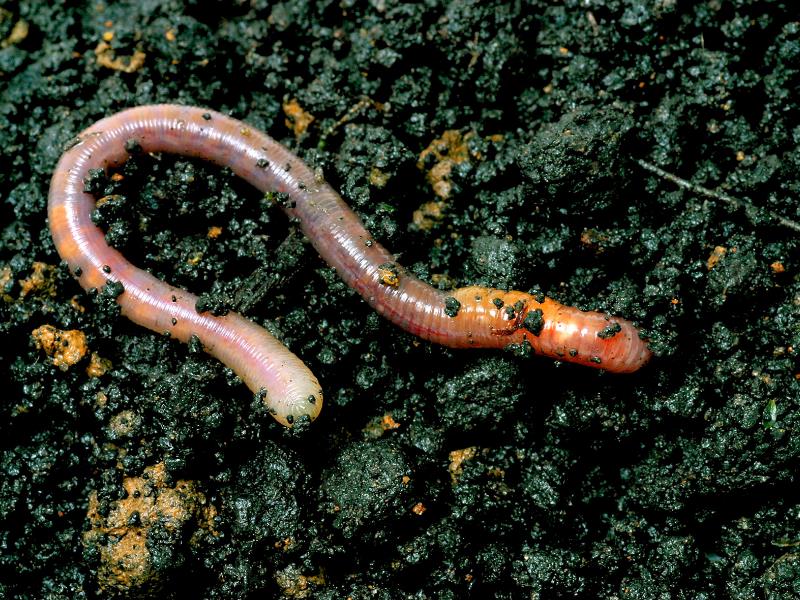
A worm farm, often known as “Vermiculture,” is more than just a community of worms. It’s an eco-friendly method of converting food scraps and organic waste into high-quality compost. Here’s a concise breakdown:
- Eco-Friendly Recycling: Worms actively break down food leftovers and organic materials, turning them into nutrient-rich compost.
- Thriving Ecosystem: Within the farm, worms reproduce and multiply, ensuring a continuous cycle of composting.
- Valuable Outputs: Not only can the compost be sold or used to enrich garden soil, but the worms themselves are in demand for both farming and fishing purposes.
For entrepreneurs and small business owners, worm farms present an eco-conscious venture with tangible benefits!
How Does a Worm Farm Make Money?
| Revenue Stream | Description | Target Audience |
|---|---|---|
| Lodging Establishments | Sell worms for composting bins in accommodation facilities. | Hotels, Motels, Inns, B&Bs |
| Gardeners and Nurseries | Provide worms to enhance soil health and composting. | Gardeners, Plant Nurseries |
| Compost Sales | Sell nutrient-rich vermicompost produced by worms. | Gardeners, Farmers, Nurseries |
| Anglers and Bait Shops | Offer worms as bait for fishing. | Fishing enthusiasts, Bait shops |
| Animal Feed Producers | Supply worms to consume waste products in animal feed production. | Animal Feed Manufacturers |
| Fish and Crop Farmers | Enhance soil quality with worms for crops. Offer worms as fish feed. | Crop Farmers, Fish Farmers |
| Starter Kits | Sell kits with worms and instructions for home composting. | Homeowners, Eco-conscious individuals |
| Worm Tea | Offer a nutrient-rich liquid fertilizer derived from worm compost. | Organic Gardeners, Farmers |
| Educational Kits for Schools | Provide worm farms as hands-on learning tools for students. | Schools, Educational Institutes |
| Workshops and Training | Educate about vermiculture through workshops. | General Public, Garden Enthusiasts |
| Online Presence | Sell worm-related products through an online platform. | Global Audience, Eco-shoppers |
| Eco-friendly Packaging | Offer worms in sustainable packaging appealing to environmentally-conscious buyers. | Eco-conscious consumers |
| Affiliation with Organic Stores | Partner with organic stores to promote or stock worm products. | Organic Shop Patrons |
| Bulk Sales to Large-scale Farms | Contract with larger farms or community gardens for bulk worms or compost. | Large-scale Farms, Community Gardens |
Worm farming is increasing in popularity, which makes it much easier to make money. The same goes for other insects and mushrooms. If you are looking into worms, it is also worth knowing how to start a cricket farm or how to start a mushroom farm.
Ways a Worm Farm Makes Money:
- Lodging Establishments: Selling worms to hotels, motels, inns, and B&Bs can be lucrative. These establishments often have composting bins to manage organic waste, and worms are essential for efficient composting.
- Gardeners and Nurseries: Worms are in high demand among gardeners and nurseries for their composting abilities and the nutrient-rich soil they produce.
- Compost Sales: The compost produced by worms, often called vermicompost, is a goldmine. It’s teeming with beneficial microbes and is a sought-after organic fertilizer.
- Anglers and Bait Shops: Worms, especially specific breeds like red wigglers, are favored by fishing enthusiasts, making bait shops a viable market.
- Animal Feed Producers: Some animal feed producers leverage worms to consume waste products, optimizing their production process.
- Fish and Crop Farmers: Worms can enhance the soil quality, benefitting crop yields. Fish farmers also sometimes use worms as feed for certain fish species.
- Starter Kits: Homeowners keen on recycling kitchen waste can be targeted with starter kits. These kits, complete with worms and instructions, can assist homeowners in setting up their own mini worm farms.
- Worm Tea: A nutrient-rich liquid, worm tea is derived from soaking worm-produced compost in water. It serves as an effective organic liquid fertilizer, popular among organic gardeners.
- Educational Kits for Schools: Worm farms can be fascinating for students. Selling educational kits to schools can provide hands-on learning about composting, recycling, and biology.
- Workshops and Training: Offer workshops on vermiculture, educating people about its benefits and how-to aspects. This can be a source of income and also boost sales indirectly.
- Online Presence: Create an online store or platform to sell worm-related products. Digital reach can help tap into broader markets and connect with international buyers.
- Eco-friendly Packaging: Sell worms in sustainable, eco-friendly packaging. This can appeal to environmentally conscious consumers willing to pay a premium for green products.
- Affiliation with Organic Stores: Partner with organic and local produce stores. They can promote or stock your worms and compost, reaching a target audience that values organic farming.
- Bulk Sales to Large-scale Farms: Contract deals with larger farms or community gardens, providing them with bulk worms or compost at discounted rates.
Incorporating these diversified avenues can help worm farm entrepreneurs maximize their revenue, ensuring a sustainable and profitable venture.
Starting a worm farm may sound relatively easy but making money at this venture isn’t as easy as it sounds. But don’t let that deter you from your dream of owning a worm farm. Check out this video from Urban Worm Company to learn more:
How Much Money Can You Make Starting a Worm Farm?
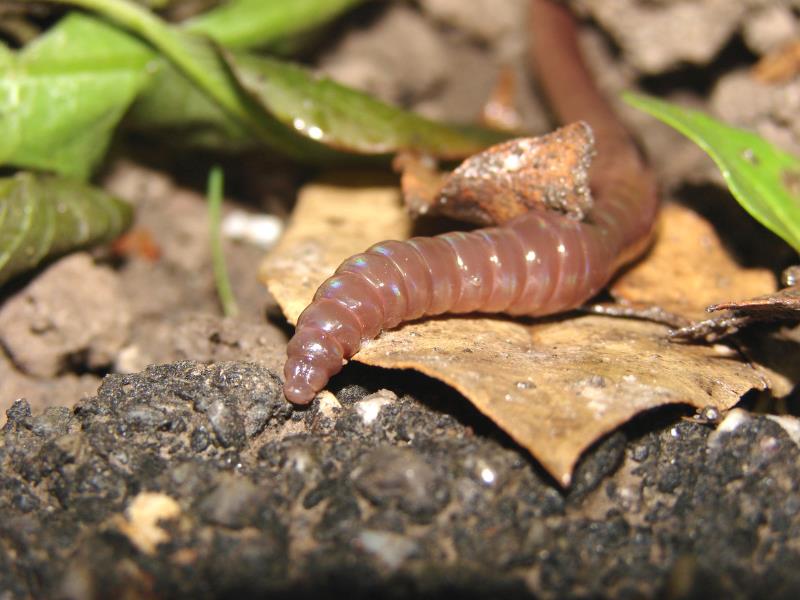
Let’s talk numbers.
You can sell the worms by the numbers or by the pound. Current prices are $10 for 300 worms or about $30 per pound. The worm castings (yep, their poop) sell for about $3 a pound.
In a 3-400 square foot space, you can farm about 15,000 worms. Those worms will produce about 5,000 pounds of castings per month.
2,000 worms will weigh about 2 pounds. Every 2 pounds of worms need one pound of worm food per day.
Let’s say you have a good source of organic material (food scraps) you can use to feed all the worms. In a month, your 2,000 worms will produce about 666 pounds of worm castings per month. That’s worth about $2,000.
And they’ll also be using that warm, dark, dry ambiance to produce more worms. In the bedding, you’ll see small oval balls, which are worm eggs. Each egg should hold several worms.
How much can you make? That depends on how many worms you have.
14 Simple Steps to Start a Worm Farm
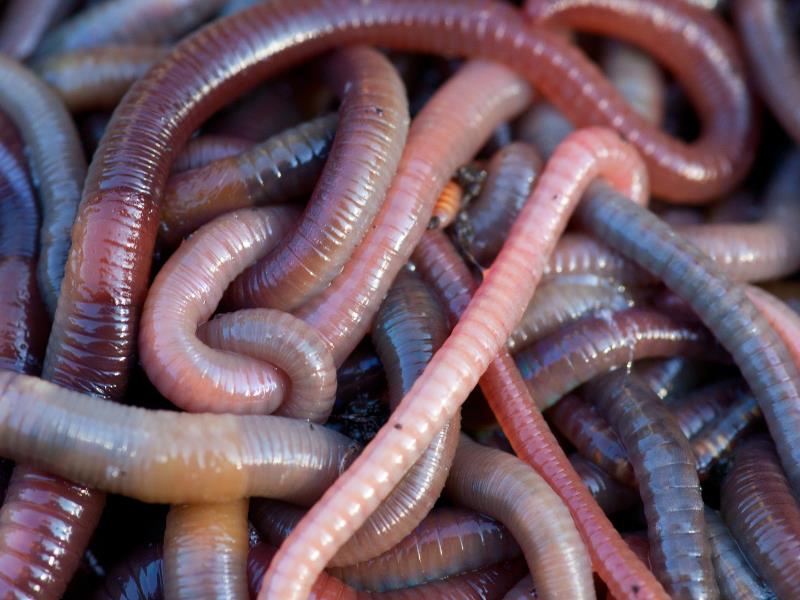
How to start a worm farm is not rocket science. With the right set up your labor will be minimized, and you’ll also be likely to raise healthy worms.
1. Name, Brand, and Register Your Business
Before you choose a name, check with your secretary of state to make sure the name has not already been taken. Choose a name that reflects the type of customer you seek. A catchy name will help you brand the business.
2. Create a Worm Farm Business Plan
All businesses should have a written plan for establishing, maintaining and growing your business, and worm farms aren’t exempt from this requirement.
Also develop a mission statement which describes your reasons for running this type of business.
Include your estimates for expenses and income, and a plan for expansion.
3. Sort Out Taxes, Licenses, Permits and Insurances
Check with your state Department of Agriculture for any special permits you may need for worm farming. For example, you will most likely need an intrastate transport permit if you’re selling worms across state lines.
You’ll also need:
- Business operating permit
- Federal EIN (Employer Identification Number) so that you can report sales tax.
- Sales Tax Permit
- Liability Insurance
- Commercial Property Insurance (or home occupation insurance if starting at home)
- Workers Comp if you hire employees.
4. Choose a Worm Type
There are about 3,000 kinds of worms. The ones you’ll sell are earthworms, and there are 3 main types of earthworms. One type stays in the soil and one type lives in deep, vertical burrows in the soils. You don’t want either one of those types.
Worm farms use Epigeic worms, which live on top of the soil and feed on organic matter. The most common ones used are red wrigglers, which multiply rapidly to increase your worm population.
5. Form a Business Entity
Choose from one of the following business types:
- Sole Proprietorship
- Limited Liability Company (LLC) – the top choice, since it protects your personal assets from legal claims.
- S Corporation
- C Corporation
6. Create a Feeding Schedule
As previously stated, feeding is a ratio of 2 to 1. Every 2 pounds of worms need 1 pound of food on a daily basis.
The best course of action is to feed daily. That way you won’t have annoyances such as odor or fruit flies coming from your organic food source.
7. Buy the Necessary Equipment
The list of necessary equipment is simple: the worm bins, a drill and spade bit (for making holes), gloves, large and small turning forks (for the compost), trowels, composter.
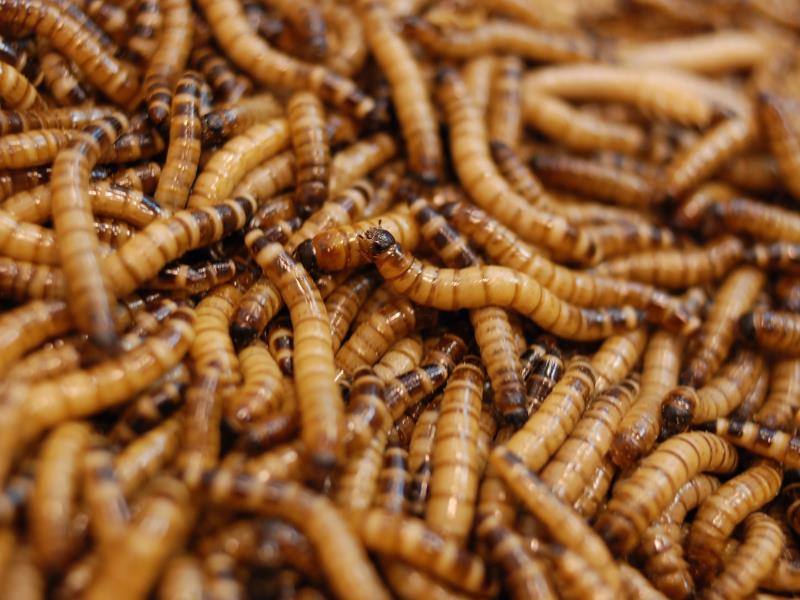
8. Make Your Worm Bin and Add Scraps
You can make a worm bin. You can have a small worm farm or grow to be commercial size.
The worm bed area needs to be kept between 40 and 80 degrees. You can use a wood or plastic bin. In fact, many make their first bins using an old dresser – making sure to first drill holes in the bottoms of each drawer before adding worm bedding. An old dresser makes a good worm house. Plastic bins are easier to clean and sanitize.
You can buy a ready-made worm first bin on Amazon for about $50 and add a second bin or two later.
Set up the bin inside by starting with a layer of newspaper or cardboard/paper grocery bag on the bottom. Add your prepared compost on top of that. You can buy compost or make your own to create a
You can make your own finished compost bin by combining ingredients such as garden soil, coffee grounds, leaves, fresh horse manure, shredded newspaper (or other shredded paper), crushed egg shells and other material. Fresh manure will contain weed seeds but that’s okay. You’ll need a big pitchfork to turn the compost as it ages. Moist bedding is okay, but there should not be excess moisture.
Once you’ve added enough compost to the bin (leaving room on top for the layer of food and a covering), you can add kitchen scraps such as vegetable scraps, other food scraps and even some fresh food such as citrus fruits. Rotting food waste should be used to make compost, and not used to feed the worms.
9. Introduce Worms to the Bin
Add worms to the worm composting bin, spreading them out to keep the worms happy.
Cover the worms with about 5 sheets of moist newspaper (soak the sheets and wring them out). Worms are very shy of light and will only eat covered food scraps. They won’t work within exposed food.
Add food scraps to your worm factory daily. In about a month your bin will be filled with valuable worm compost.
10. Market Your Business
Join your local Chamber of Commerce. Create a website and social media (FB) presence. Attend Ag fairs and garden shows.
Offer to come to schools and talk with students about how worms work and all the benefits they provide. Offer to donate a starter worm farm to a science class.
11. Harvest
Here’s a cool fact about worms – those red wigglers are crazy about pumpkin, cantelope and watermelon. Just before harvest, you can withhold food for a day and then provide one or all of those three foods. The worms will swarm to the top of the bin.
You’ll have to lay out portions of the bin material on tarps or plastic lids. Once you’ve picked out the worms, you can create the worm casting leachate. The compost worms produce worm castings, enriching the soil.
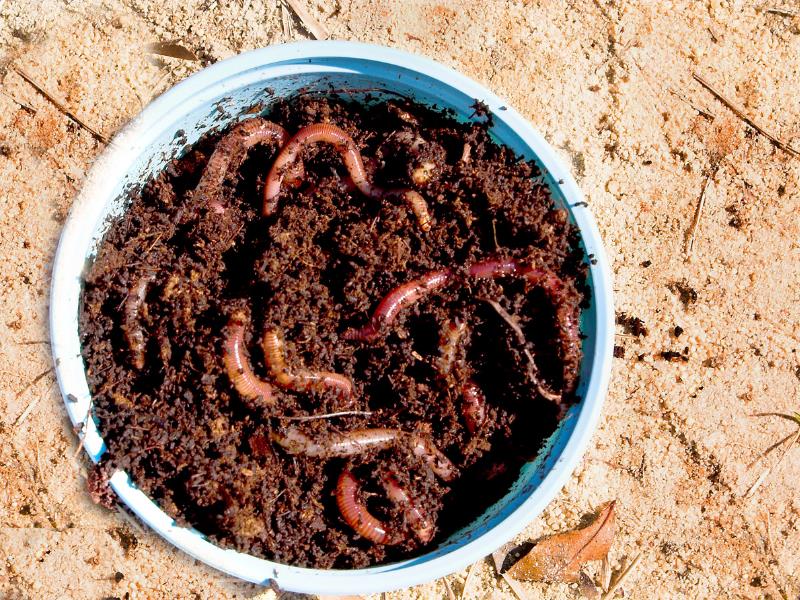
12. Sell Your Worms
Sell worms to the markets you’ve established: gardeners and nurseries, lodging and food establishments, landscapers, homeowners, etc.
13. Consider Selling By-products
The compost tea, make from soaking the castings-rich soil in water, is a great soil nutrient.
Or you can pick out the castings and sell them for about $3 a pound.
14. Grow Your Business
Customer service is the key to the growth of any enterprise. Whether it is a fish farming business or worms, getting the word out is key. Informative talks at schools or at special events will also grow your business for businesses that are out of the ordinary.
Provide introductory letters to potential customers, as well as to potential sources of scrap and other food for worms.
Image: Depositphotos
This article, "How to Start a Worm Farm" was first published on Small Business Trends
||----------------------------------------------------------------
By: Lisa Price
Title: How to Start a Worm Farm
Sourced From: smallbiztrends.com/2023/08/how-to-start-a-worm-farm.html
Published Date: Tue, 08 Aug 2023 16:14:24 +0000






